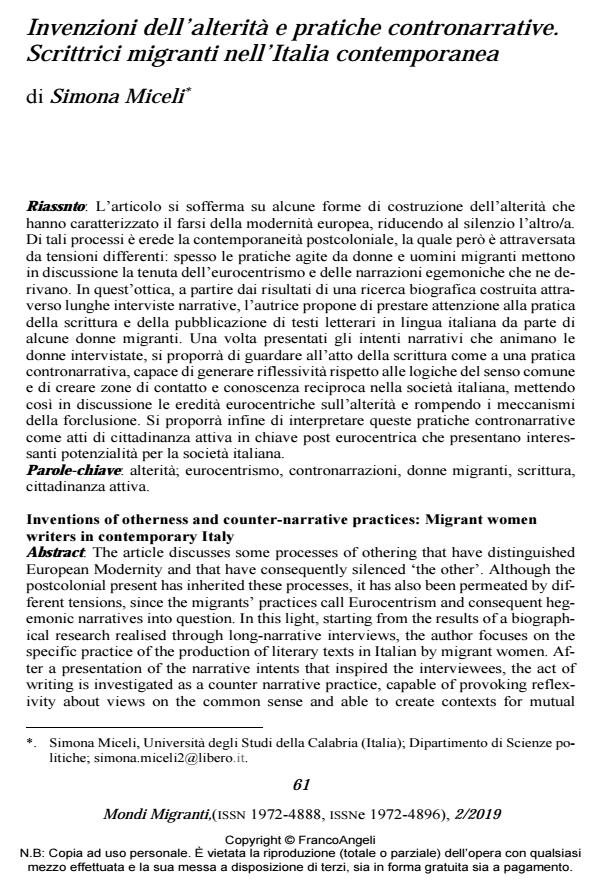Inventions of otherness and counter-narrative practices: Migrant women writers in contemporary Italy
Journal title MONDI MIGRANTI
Author/s Simona Miceli
Publishing Year 2019 Issue 2019/2
Language Italian Pages 19 P. 61-79 File size 182 KB
DOI 10.3280/MM2019-002004
DOI is like a bar code for intellectual property: to have more infomation
click here
Below, you can see the article first page
If you want to buy this article in PDF format, you can do it, following the instructions to buy download credits

FrancoAngeli is member of Publishers International Linking Association, Inc (PILA), a not-for-profit association which run the CrossRef service enabling links to and from online scholarly content.
The article discusses some processes of othering that have distinguished European Modernity and that have consequently silenced ‘the other’. Although the post-colonial present has inherited these processes, it has also been permeated by dif-ferent tensions, since the migrants’ practices call Eurocentrism and consequent hegemonic narratives into question. In this light, starting from the results of a bio-graphical research realised through long-narrative interviews, the author focuses on the specific practice of the production of literary texts in Italian by migrant wom-en. After a presentation of the narrative intents that inspired the interviewees, the act of writing is investigated as a counter narrative practice, capable of provoking reflexivity about views on the common sense and able to create contexts for mu-tual knowledge in Italian society. In doing so, the endeavours of migrant women writers may call into question the Eurocentric legacy of otherness and break the mechanisms of forclusion. Finally, these counter narrative practices are interpreted as acts of active and post-eurocentric citizenship, which show interesting potential-ities for the Italian society.
Keywords: Otherness, eurocentrism, counter narratives, migrant women, writing, active citizenship.
Simona Miceli, Invenzioni dell’alterità e pratiche contronarrative. Scrittrici migranti nell’Italia contemporanea in "MONDI MIGRANTI" 2/2019, pp 61-79, DOI: 10.3280/MM2019-002004